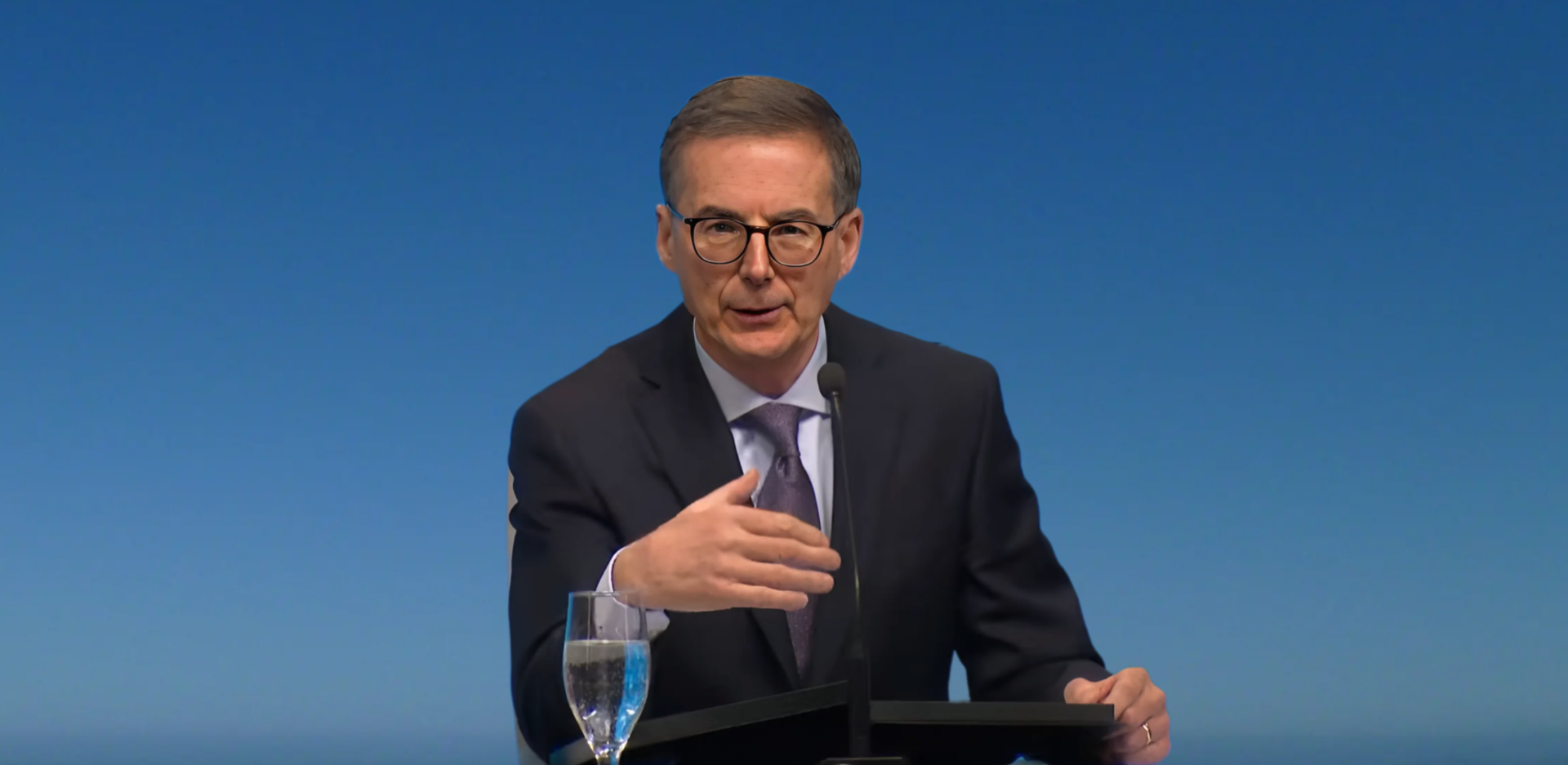Bank of Canada Governor Tiff Macklem took center stage at the Wilson Center’s Washington Forum on the Canadian Economy, joining a distinguished panel that included Federal Reserve Chair Jerome Powell and former Canadian finance minister Bill Morneau. The panel discussion, a highlight of the spring meetings of the International Monetary Fund and World Bank, focused on strengthening economic ties between Canada and the United States.
In his remarks, Macklem emphasized the importance of the Canada-U.S. economic relationship, describing it as “by far our most important relationship.” He highlighted the deep integration between the two economies, noting that 35% of Canada’s GDP comes from exports, with 75% of that going to the United States.
“Our economies are highly integrated,” Macklem stated, emphasizing the interconnectedness of financial markets and the significant presence of Canadian companies listed on U.S. stock exchanges. He also pointed out that Canadian banks have operations in the United States, and Canadian pension funds are major investors in the U.S. market.
Discussing the differences between the Canadian and U.S. economies, Macklem highlighted the larger commodity sector in Canada, which makes up 40% of exports and 13% of GDP. He noted that the commodity cycle can be different between the two countries due to Canada’s flexible exchange rate, which allows for monetary policy adjustments tailored to the country’s specific needs.
Macklem also touched upon the role of the Bank of Canada in maintaining stability and promoting growth. He explained that while the bank focuses on achieving maximum employment and price stability domestically, it is fully aware of the global implications of its policy decisions.
“We fully realize and appreciate that our decisions can have significant effects not just on Canada but on countries around the world,” Macklem said, acknowledging the U.S. dollar’s role as the principal reserve currency and its impact on global economic stability.
Addressing the recent challenges posed by inflation, Macklem characterized the current situation as unique, driven by both constrained supply and elevated demand. He noted that the pandemic-related distortions to supply and demand needed to be unwound for price stability to be restored.
“We think today that we’re seeing those two things working together to bring that end about,” Macklem said, pointing to the recovery in the supply side of the economy in 2023 as evidence of progress.
Federal Reserve Chair Jerome Powell echoed Macklem’s sentiments, emphasizing the importance of the domestic mandate in shaping policy decisions while recognizing the global implications of U.S. monetary policy. Powell stressed the Federal Reserve’s commitment to achieving maximum employment and price stability, underscoring the significant effects of U.S. policy decisions on global markets.
“Our decisions can have significant effects not just on Canada, but on countries around the world,” Powell noted, acknowledging the dollar’s role as the principal reserve currency and its impact on global economic transmission.
Both central bank leaders emphasized the challenges posed by the recent inflationary pressures, acknowledging the unique supply-demand dynamics that emerged post-pandemic. Macklem highlighted the role of supply constraints and elevated demand in driving inflation, while Powell noted the unexpected shortages and labor market challenges in the U.S.
As the discussion shifted towards trade, Macklem and Powell underscored the importance of the Canada-U.S.-Mexico Agreement (USMCA) in ensuring market access and promoting economic stability. They recognized the mutual benefits of the healthy trade relationship between Canada and the United States, emphasizing the need for collaboration and cooperation in maintaining market certainty.
The panel discussion concluded with an appreciation for the strong economic ties between Canada and the United States and a call for continued collaboration to support global economic stability and growth.

